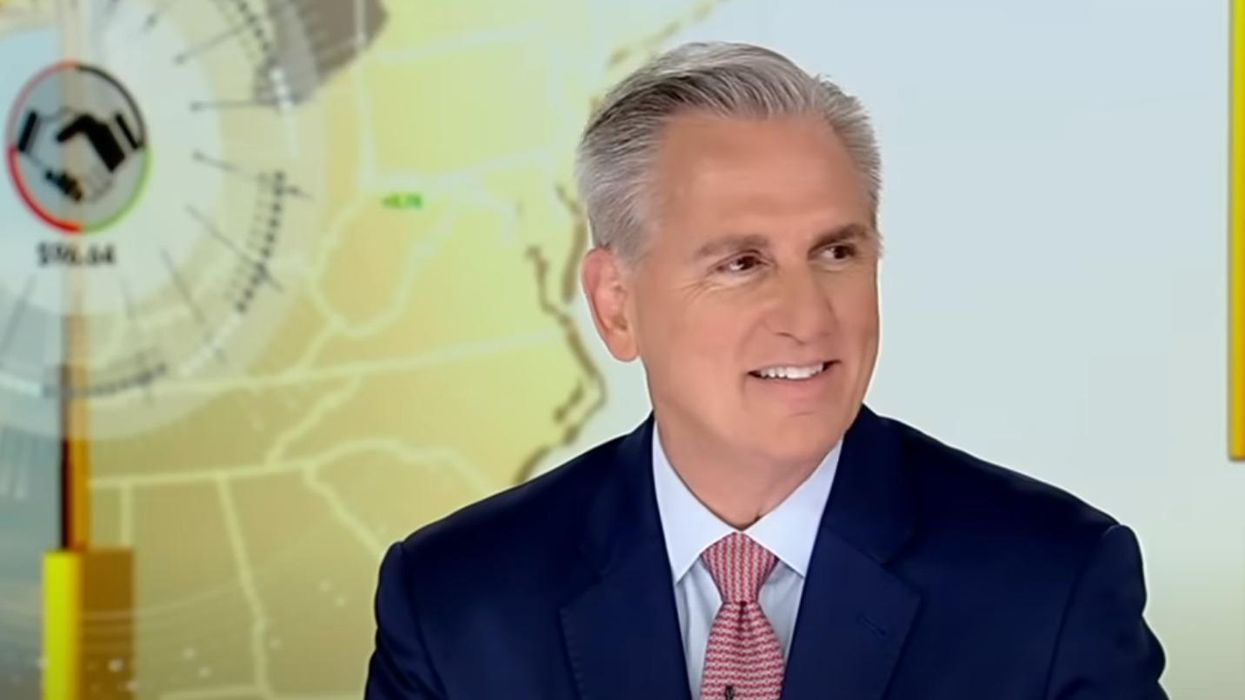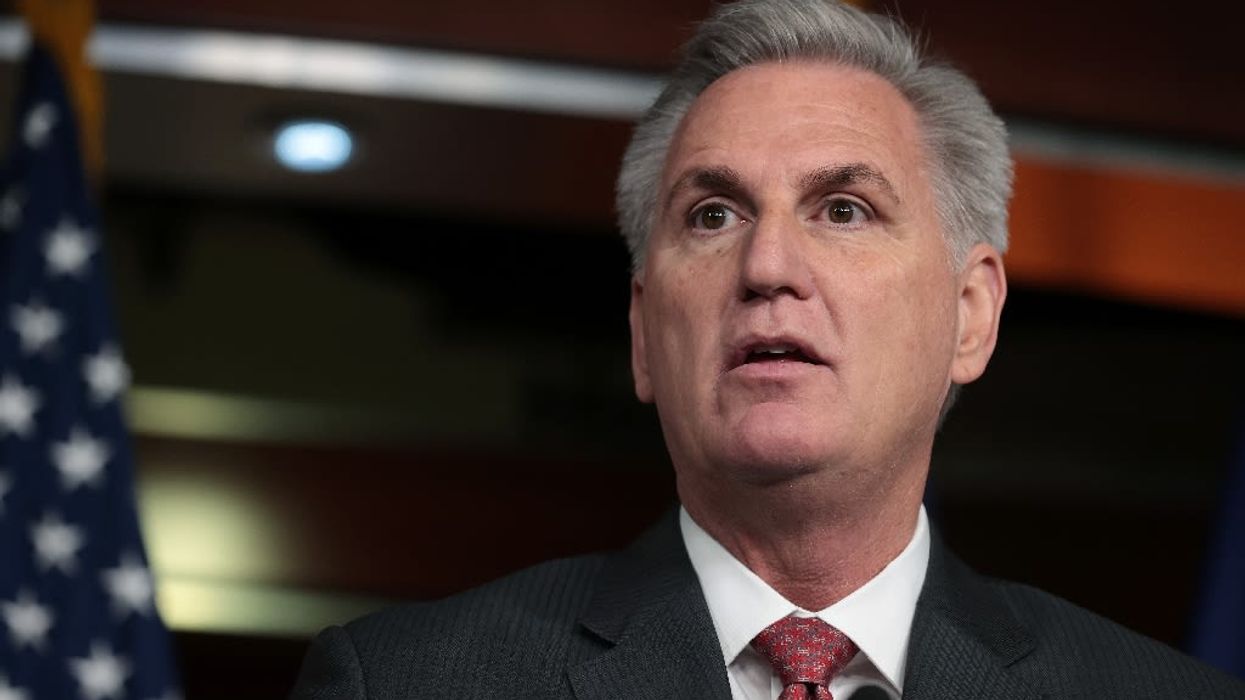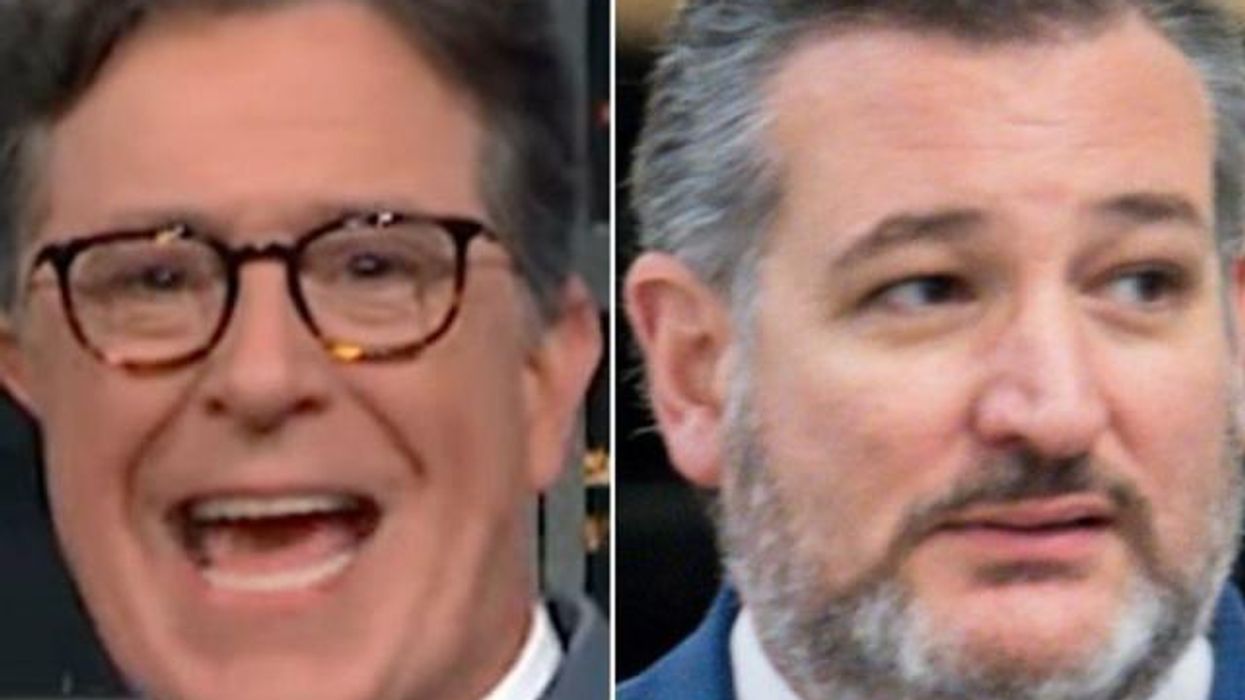House Republicans Lie About Huge Cuts For Veterans In Their Budget
House Republicans are lying about the debt ceiling bill they passed on April 26 when they say the across-the-board budget cuts it demands in exchange for preventing the United States from defaulting on its debts won’t impact veterans programs.
The $1.5 trillion Limit, Save, Grow Act that House Republicans passed on a party-line vote would slash federal funding back to 2022 levels in exchange for lifting the debt ceiling.
If Congress doesn’t lift the debt ceiling by June 1, the United States will be unable to pay its obligations, which experts say would cause a financial crisis and recession.
The White House, Democratic lawmakers, and some outside think tanks said reverting back to 2022 spending levels would require spending cuts averaging 22 percent.
House Republicans claim they will not approve funding cuts to the Department of Veterans Affairs, but the bill doesn’t explicitly exclude programs for veterans.
“House Republicans are NOT going to cut the VA budget,” the House Republican conference tweeted on April 30 after criticism of the GOP’s legislation and its impacts on veterans began to take hold. “President Biden and extreme Democrats are continuing to lie and fearmonger about the Limit, Save, Grow Act. Don’t believe them. Republicans have always prioritized veterans in our budgets.”
Republicans threatened to investigate the Department of Veterans Affairs for suggesting that the GOP’s bill would cut funding to veterans programs.
Rep. Don Beyer (D-VA), the senior House Democrat on the Joint Economic Committee, tweeted on Monday in response: “House Republicans are lying. Their bill immediately rescinds past funding Congress obligated to the VA. And it directs massive across-the-board budget cuts without exempting the VA. Republicans could’ve excluded the VA from those cuts but chose not to. They voted to cut the VA.”
Veterans groups, which wanted explicit language in the bill saying that veterans programs wouldn’t be cut, say they feel duped: After the bill was introduced, Veterans Affairs Committee Chair Mike Bost (R-IL) had said in a statement posted on the committee’s website:
For months, Democrats have spread false claims that House Republicans would cut veterans’ benefits to get our fiscal house in order. With the introduction of the Limit, Save, Grow Act, the message could not be clearer. This commonsense bill will grow the economy and save American taxpayers money, all while protecting veterans’ benefits, Social Security, and Medicare. Republicans have always prioritized veterans in our spending to ensure veterans have access to the care, benefits, and services they have earned, and as the Chairman of this Committee, that is my number one priority. Anyone who questions our commitment to the men and women who have served should find new talking points.
“Today’s vote sends veterans a clear message: your care and benefits are up for negotiation,” Allison Jaslow, the CEO of Iraq and Afghanistan Veterans of America, said in a statement published on April 26. “Veterans’ calls to include explicit protections for Department of Veterans Affairs funding in The Limit, Save, Grow Act of 2023 went ignored. Politicians effectively turned their backs on us – rushing a bill to the House floor that does nothing to protect veterans’ care and benefits as they seek to aggressively cut federal government spending – and expressed no shame in doing so.”
A coalition of 20 veterans groups sent a letter to Congress saying they also fear cuts to veterans’ programs.
The groups, which included VoteVets, the Union Veterans Council, and the National Military Family Association, said in the letter: “If enacted, the proposed legislation would dramatically reduce total federal discretionary spending and could endanger funding for VA and veterans’ programs. Without specific language to explicitly protect VA from the impact of the proposed budget reductions, it would leave many veteran resources open to cuts, potentially undoing years of progress VA has made for those that have earned it.”
House Republicans say the bill merely reverts to spending levels that were in place last year.
“The President wants you to believe the sky will fall if Republicans limit spending to what it was in Dec 2022—just 4 months ago,” House Speaker Kevin McCarthy tweeted April 26. “But when he signed these same exact spending levels into law last year, he sang their praises. What changed, Mr. President?”
For the past year and a half, however, Republicans have frequently pointed out that inflation has made goods more expensive, meaning that it will cost more for the government to buy the same number of items now than it did a year or two ago.
On December 13, 2022, the House GOP caucus tweeted: “Eggs are UP 49.1%. Airline Fares are UP 36%. Milk is UP 14.7%. Electricity is UP 13.7%. Groceries are UP 12%. Chicken is UP 12%. Gas is UP 10.1%. Baby Food is UP 10.9%.”
In December 2021, McCathy released a press release titled “Inflation is Crushing California’s Small Business Owners” in which he told constituents, “Republicans across the country are continuing to put pressure on the Biden administration to hold them accountable for this skyrocketing inflation – the highest in over three decades.”
After several actions by the previous Congress and the Biden administration to shore up supply chains and curb inflation, inflation has eased in recent months from its nine percent rate in June 2022. But according to the Bureau of Labor Statistics, consumer prices increased by five percent between April 2022 and March 2023.
As a result, reverting overall spending to 2022 levels would be even more of a cut than just the 22% reduction in actual dollars.
“Funding for these programs needs to rise to meet national needs, address shortfalls that hamper the delivery of government services, and help create an economy in which everyone has the resources needed to thrive,” the Center on Budget Policy and Priorities, a progressive think tank, wrote in an analysis of the bill.
Reprinted with permission from American Independent.












